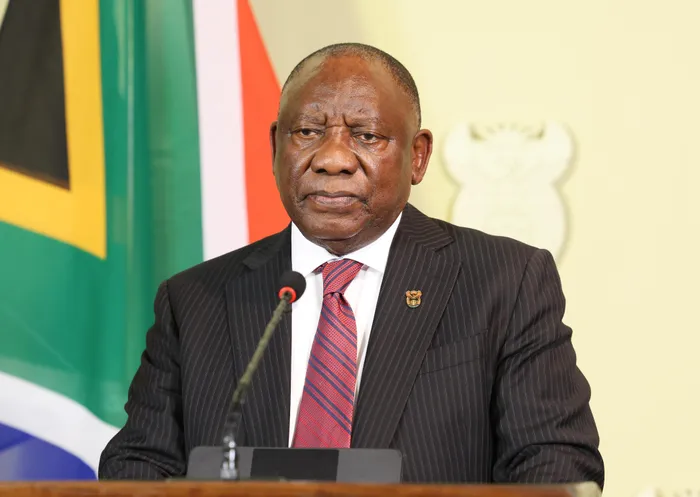
President Ramaphosa's recent address raises critical questions about the integrity of South Africa's security system. What lies beneath the surface of his promises for reform?
Image: Supplied / GCIS
President Cyril Ramaphosa’s Sunday night address may have sounded resolute, but it left a trail of unanswered questions that South Africans must not ignore. While the establishment of a judicial commission to probe the alleged infiltration of law enforcement by criminal syndicates is significant, it also raises a disturbing question: How did our security system disintegrate this far under our noses?
The President spoke of a “sophisticated criminal syndicate” involving police, prosecutors, metro police, even judges yet he failed to account for the systemic failure of oversight mechanisms that allowed such decay. Should we believe this rot is only now being uncovered by a provincial commissioner? Or has this web of complicity been tolerated, even protected, by those entrusted to guard our institutions?
Lt Gen Mkhwanazi’s explosive claims point not just to isolated corruption, but to a shadow state operating within the state-one that has allegedly captured organs of justice for private gain. This is not a policing crisis; this is a crisis of governance. Why did it take a public media briefing for the President to act? What was intelligence doing all along?
Putting Police Minister Senzo Mchunu on “leave of absence” is hardly accountability. If the allegations suggest complicity at the highest levels, why stop at leave? Why not suspension pending investigation? And what of Parliament’s role in oversight-has it been asleep or complicit?
Moreover, by appointing Acting Deputy Chief Justice Mbuyiseli Madlanga to chair the Commission, Ramaphosa risks politicising the judiciary at a delicate time. Can the judiciary investigate itself without reputational compromise?
And then there’s the broader fear: if police, prosecutors, and magistrates can be co-opted by cartels, what recourse do ordinary South Africans have? Where does the buck stop?
This moment calls not just for a commission but for reckoning. We must confront the uncomfortable reality: state capture may never have ended; it merely shifted domains. As we await the Commission’s findings, we should ask: is South Africa governed by law or by those who bend it in the dark?
Until we answer that, no address from the Union Buildings can assure us of our safety.
Pikolomzi Qaba
Related Topics: